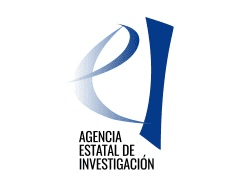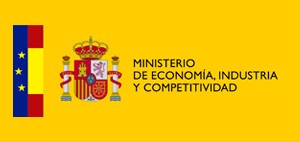
A more efficient use of natural resources and feedstocks demands a more efficient chemical industry. The improvement of catalytic processes is an important tool for reaching this goal. New processes will ideally lead to the same products, but with fewer undesired side products and under more benign conditions. The design of new catalytic processes can be substantially helped by an improved mechanistic knowledge.
Recent progress in mechanistic understanding has led to an increasing realization of the relevance of single electron transfer (SET) steps, which seem to occupy a central role in catalysis by first-row transition metal complexes. SET complements the electron pair transfers that have so far dominated the field, and open the way for the development of brand new reactions. In this project we will examine the role of SET in oxidative coupling, water oxidation and nickel chemistry. Oxidative coupling is a complementary approach to cross-coupling for the synthesis of fine chemicals which leads to improved atom economy and reduction of waste. Water oxidation is one of the most promising approaches for the conversion of solar energy into chemical energy in form of hydrogen apt for fuel cells. Nickel is one of the most promising elements for the replacement of conventional catalysts based on the more toxic and expensive palladium and ruthenium.
Photocatalysis is conceptually related to SET as the phosphorescent or fluorescent excited states often return to the ground state through this mechanism. We will apply our increasing expertise in the topic to the study of photoactivated dioxygen insertion and photocatalytic coupling.
Another area that seems to be in the verge of a breakthrough is the application of statistical treatments to computational chemistry. Continuous increase in computer power has moved the bottleneck in this research from the generation of energies and structures to the processing of the large number of energies and structures that nowadays can be easily generated. Application of computers to the treatment of these raw computational data is now just starting. An interesting concept is that of descriptor. Descriptors are the numerical variables associated to molecules or fragments that are combined mathematically reproduce a given property. We intend to develop new descriptors for the reproduction of both thermodynamic and reactivity data. We also intend to continue collaboration with other
computational groups in the development of a repository database. Other methodological efforts will involve microkinetic models and QM/MM methods.
Finally, we must mention that we will maintain our commitment to more traditional lines of computational catalysis without direct involvement of single electron transfer of new methdological developments. We will continue research on metallocarbene and metallonitrene chemistry, and on carbon dioxide chemistry. We will open a new line on dual silver-palladium catalysis, which is a promising field and a natural extension of our previous work on cross-coupling.
SETSTAT

Ministerio de Ciencia e Innovación